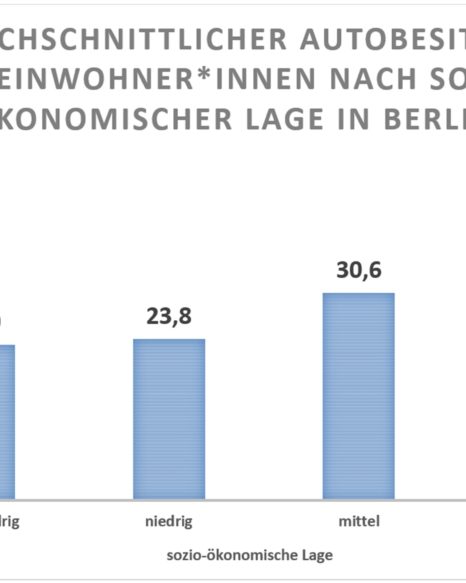Doctoral Candidate
Alexander Czeh ist wissenschaftlicher Mitarbeiter am Institut für Verkehrsforschung des Deutschen Instituts für Luft- und Raumfahrt (DLR) und Experte für nachhaltige Mobilität mit den Schwerpunkten Aktive Mobilität, Lastenradverkehr, Paratransit und Flächengerechtigkeit in der Stadt- und Verkehrsplanung. Er promoviert an der Fakultät für Architektur an der Technischen Universität Braunschweig zu den Potenzialen der Verkehrswende für die Umgestaltung des städtischen Raumes. Dabei untersucht er z. B., ob durch die Verkehrswende mehr Wohnraum durch den Rückbau durch Autoinfrastruktur in den Städten gewonnen werden kann. Alexander Czeh studierte an den Technischen Universitäten von Dresden, Delft und Berlin und hält einen MBA in Sustainable Mobility Management und einen M.Sc. in Verkehrswirtschaft. Als Wissenschaftler, Berater und GIS-Analyst arbeitete Alexander Czeh für internationale Kooperationen im Bereich der Entwicklungszusammenarbeit, den öffentlichen Sektor sowie für die Privatwirtschaft in Georgien, Deutschland, Kasachstan, Laos, Liberia, der Ukraine, Saudi-Arabien, Tansania und Vietnam. Alexander Czeh ist Mitglied des European Institute for Sustainable Transport und Ländermanager Deutschland für den Lastenrad-Sharing-Anbieter Cargoroo.
Publications
Jarass, J., Nähring, A., Merzoug, S., Becker, S., Götting, K., Kläver, A., Czeh, A. (2021). Platz statt Kreuzung – Straßenraum neu denken: Mehr Aufenthaltsqualität im öffentlichen Raum als Treiber für die Verkehrswende. Internationales Verkehrswesen 4|2021, 18-22.
Czeh, A. (2020, 27. Mai). Pop-up infrastructure for active mobility in Berlin.
https://storymaps.arcgis.com/stories/9f47ef654c7841e1a8d35034088d75b7
2014
Czeh, A. (2014). Cycling in Monrovia – Transport and more; Deutsche Gesellschaft für Internationale Zusammenarbeit GIZ.
2013
Schmid, D., Bartholdi, M., Moosmann, K., Czeh, A., Engelskirchen, M. (2013). Access to Basic Services and Accessibility of the Population; Kreditbank für Wiederaufbau (KfW) and Deutsche Gesellschaft für Internationale Zusammenarbeit GIZ.
2012
Czeh, A., Kamara, A., Mrozek, M., Nuah, S. (2012). Challenges of informal motorcycle transport in Liberia; Deutsche Gesellschaft für Internationale Zusammenarbeit GIZ.
https://www.sutp.org/publications/challenges-of-informal-motorcycle-transport-in-liberia
German Aerospace Center (DLR)
Institut für Verkehrsforschung
Rudower Chaussee 7
12489 Berlin



